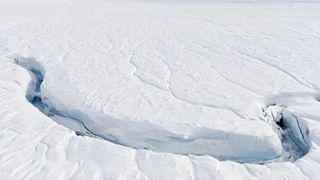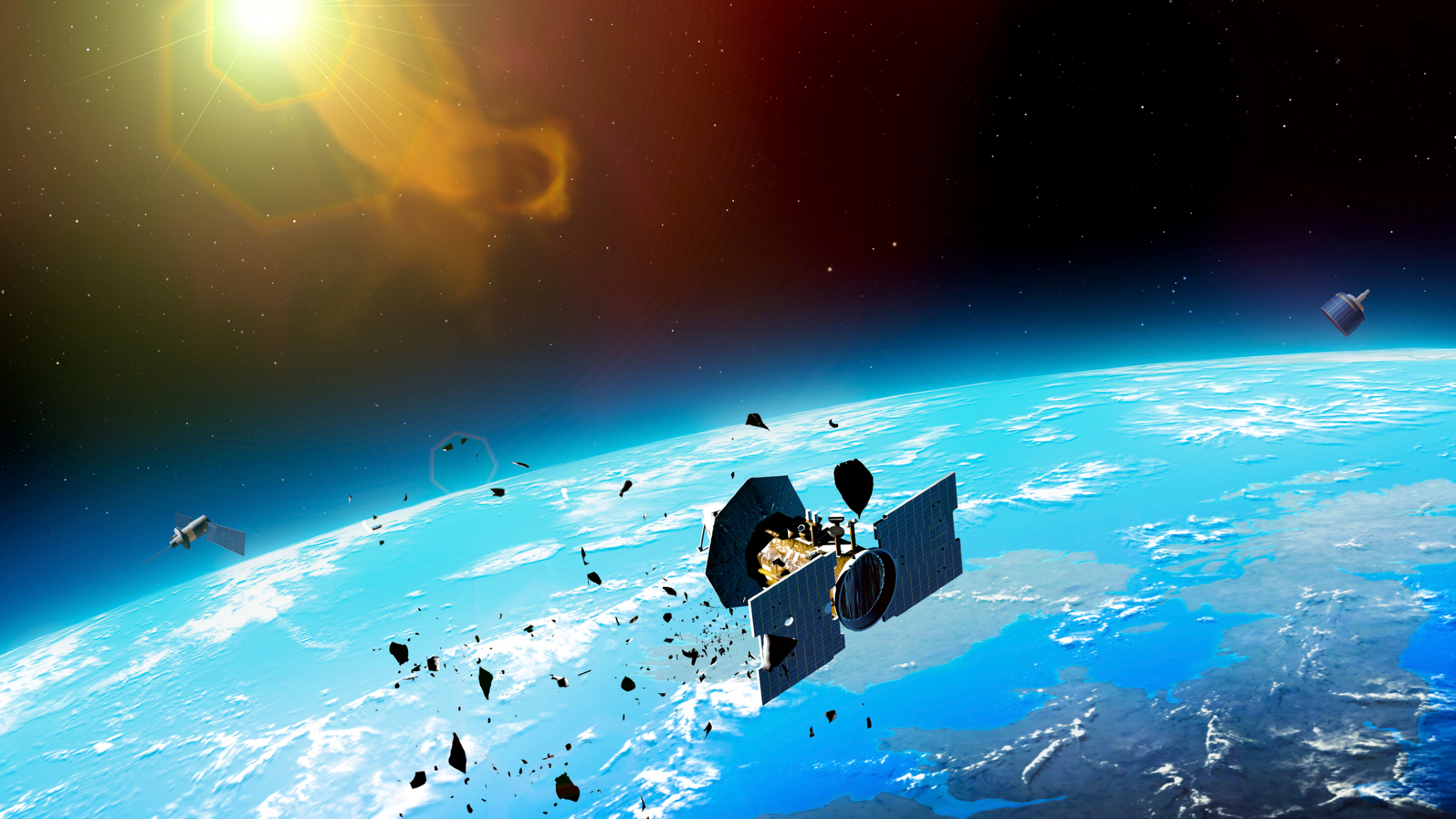Sascha is a U.K.-based trainee staff writer at Live Science. She holds a bachelor’s degree in biology from the University of Southampton in England and a master’s degree in science communication from Imperial College London. Her work has appeared in The Guardian and the health website Zoe. Besides writing, she enjoys playing tennis, bread-making and browsing second-hand shops for hidden gems.
Latest articles by Sascha Pare
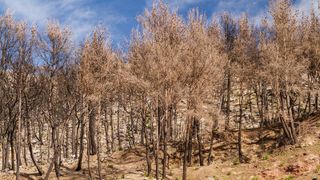
We're within 3 years of reaching a critical climate threshold. Can we reverse course?
By Sascha Pare published
A report published in June found that the world only has three years before it crosses the 1.5 C climate target. So what should we do now?
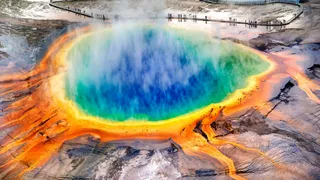
Yellowstone holds potentially untapped cache of 'carbon-free' helium for rockets, reactors and superconductors
By Sascha Pare published
Conventional helium production comes with enormous carbon emissions, so scientists are looking for alternatives in places like Yellowstone, Tanzania's Rukwa Rift and India's Bakreswar-Tantloi province.

'Major disruption' has caused Arctic polar vortex to slide off North Pole, scientists say
By Sascha Pare published
A sudden stratospheric warming event reversed the winds that make up the northern polar vortex on March 9. A new animation shows the vortex also moved away from the Arctic towards Europe.
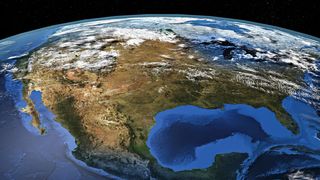
North America is 'dripping' down into Earth's mantle, scientists discover
By Sascha Pare published
Seismic mapping of North America has revealed that an ancient slab of crust buried beneath the Midwest is causing the crust above it to "drip" and suck down rocks from across the continent.

Giant ice age landforms discovered deep beneath North Sea revealed in amazing detail
By Sascha Pare published
Black holes that have been obscured by clouds of dust still emit infrared light, enabling astronomers to spot them for the very first time
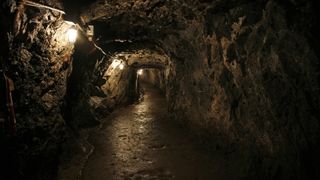
Just a fraction of the hydrogen hidden beneath Earth's surface could power Earth for 200 years, scientists find
By Sascha Pare published
Trillions of tons of hydrogen gas are likely buried in rocks and reservoirs beneath Earth's surface, but researchers aren't sure where it is yet.
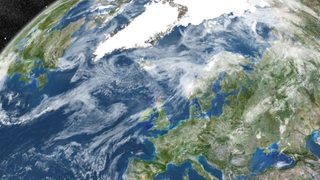
This spot will be key to the inevitable collapse of a key Atlantic current
By Sascha Pare published
New modeling research reveals that the Atlantic Meridional Overturning Circulation (AMOC) is particularly vulnerable to shifts in the Irminger sea off Greenland from increasing Arctic meltwater.
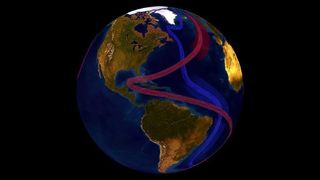
Key Atlantic current could collapse soon, 'impacting the entire world for centuries to come,' leading climate scientists warn
By Sascha Pare published
Leading climate scientists ring alarm bell on key Atlantic Ocean current collapse in open letter.

30 years of polar climate data converted into menacing, 6-minute song
By Sascha Pare published
Geoenvironmental scientist Hiroto Nagai used publicly available climate data from the North and South poles to compose an ominous-sounding chamber music piece.

Discovery of 'dark oxygen' from deep-sea metal lumps could trigger rethink of origins of life
By Sascha Pare published
In a global first, scientists working in the Clarion-Clipperton Zone in the North Pacific Ocean have found that metallic nodules on the seafloor produce their own oxygen, dubbed "dark oxygen."
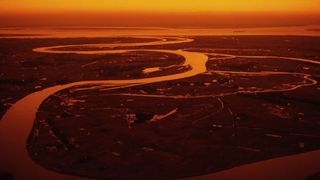
Huge earthquake 2,500 years ago rerouted the Ganges River, study suggests
By Sascha Pare published
A new study suggests an earthquake of estimated magnitude 7.5 or 8 shook the Indian subcontinent 2,500 years ago, changing the course of the Ganges.

DARPA's autonomous 'Manta Ray' drone can glide through ocean depths undetected
By Sascha Pare published
Northrop Grumman Corporation has built its Manta Ray uncrewed underwater vehicle, which will operate long-duration missions and carry payloads into the ocean depths in partnership with DARPA.
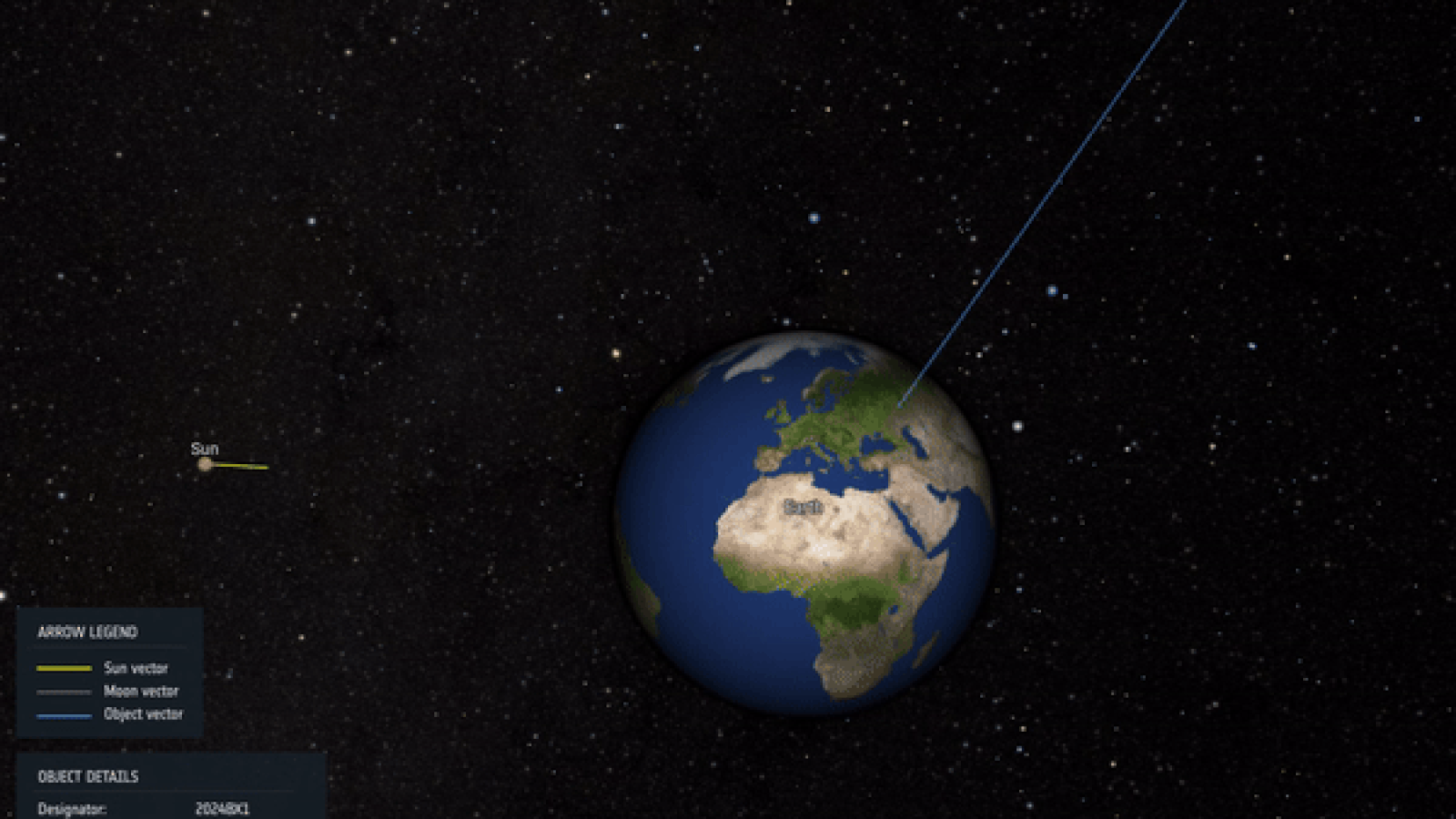
Asteroid that exploded over Berlin was fastest-spinning space rock ever recorded
By Sascha Pare published
Scientists have calculated the rotational speed of asteroid 2024 BX1, which exploded over Berlin earlier this year, by letting it trail in images of the sky. It turns out, 2024 BX1 was spinning faster than any other near-Earth object ever seen.
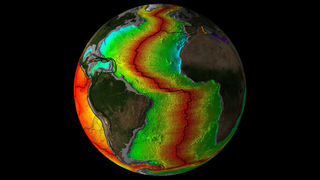
Sleeping subduction zone could awaken and form a new 'Ring of Fire' that swallows the Atlantic Ocean
By Sascha Pare published
A modeling study suggests a slumbering subduction zone below the Gibraltar Strait is active and could break into the Atlantic Ocean in 20 million years' time, giving birth to an Atlantic "Ring of Fire."
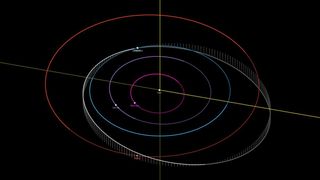
Watch newly discovered asteroid fly between Earth and moon on Jan. 27 (video)
By Sascha Pare last updated
Asteroid 2024 BJ, which astronomers detected earlier this month, will be live-streamed as it zooms within 220,000 miles of Earth, or closer to us than the average distance to the moon.
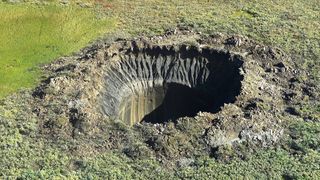
Mystery of Siberia's giant exploding craters may finally be solved
By Sascha Pare published
Giant exploding craters only known to exist on Russia's permafrost-covered Yamal and Gydan peninsulas may result from a specific set of conditions not found elsewhere in the Arctic.
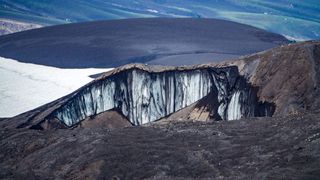
Sea of methane sealed beneath Arctic permafrost could trigger climate feedback loop if it escapes
By Sascha Pare published
A sea of migrating methane discovered below the permafrost in Svalbard may eventually escape its icy prison if the permafrost continues to thaw due to climate change.
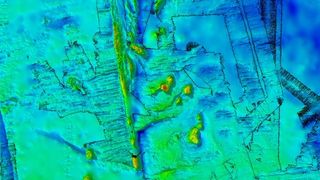
Zoom through a 'spectacular' chain of ancient underwater volcanoes on Antarctic ocean floor
By Sascha Pare published
A research expedition in the Southern Ocean has mapped a string of seamounts that help to shape an ocean current that flows clockwise around Antarctica.
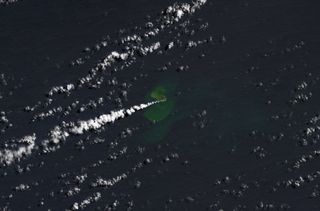
Tonga volcano eruption was fueled by 2 merging chambers that are still brimming with magma
By Sascha Pare published
Researchers have mapped the magma plumbing system beneath Tonga's underwater volcano and discovered three magma chambers, two of which fed the record-shattering 2022 eruption.
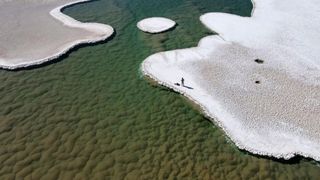
Microbes in Atacama desert's lost lagoons may mirror early life on Mars
By Sascha Pare published
A jaw-dropping ecosystem of crystal-clear lagoons and salt plains in Argentina's Puna de Atacama desert could offer a window onto early life on Earth and Mars.
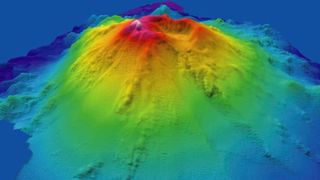
Underwater volcano riding a sinking tectonic plate may have unleashed major earthquakes in Japan
By Sascha Pare published
A seamount sitting on a subducting tectonic plate off the coast of Japan and plowing its way into Earth's mantle may be at the root of several magnitude 7 earthquakes in the past 40 years.
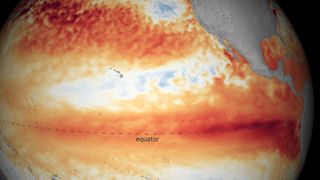
Big blob of hot water in Pacific may be making El Niño act weirdly
By Sascha Pare published
El Niño is in full swing and will likely remain "strong" this winter, but its effect on weather patterns in the U.S. depends on the behavior of an unusually warm blob in the western Pacific, experts say.
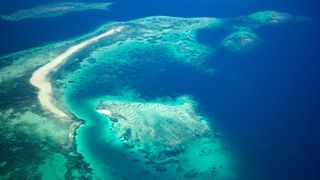
Scientists finally discover 'lost continent' thought to have vanished without a trace
By Sascha Pare published
Scientists have pieced together the remnants of a continent that broke off from western Australia 155 million years ago and seemingly vanished as it drifted northward toward Southeast Asia.
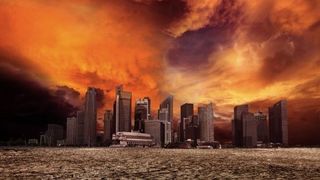
The 'safe' threshold for global warming will be passed in just 6 years, scientists say
By Sascha Pare published
New research suggests we have just six years left to limit global warming to 1.5 degrees Celsius, and two decades to keep temperatures below the 2 C threshold in the Paris Agreement.
Breaking space news, the latest updates on rocket launches, skywatching events and more!

